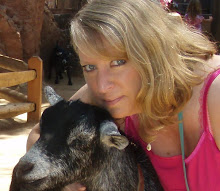
Murrough O'Brien, 1st Marquis of Thomond, 1808, print by Samuel William Reynolds after John Hoppner, © Trustees of the British Museum.
Murrough O'Brien was a friendly guy. Just about everyone who met him liked him, although some said he talked too much. Fanny Burney called him ugly; but then, she'd never actually been in Murrough's presence when she reported on his attractiveness or lack thereof. Polite, cheerful and amiable were words used to describe the Irishman. He was reputed to be a big drinker, and a great friend of the King's. He also knew the Prince of Wales, who once came to visit Murrough and stayed until two in the morning, at which point he left for his mistress's house. Murrough had many friends, foremost of whom was Edmund Burke the great Irish statesman. Other friends included the Duke of Portland, John Cox Hippisley, Joseph Farington, Dr. Charles Burney, and Sir Joshua Reynolds, whose niece Murrough ended up marrying after the death of his first wife.
Murrough owned the famous house of Cliveden in Buckinghamshire near Windsor. He also owned the neighboring estate of Taplow Court, as well as Rostellan Castle in Cork, Ireland, and assorted smaller properties in England including Bradwell Grove, Broadwell, Baylis House, and houses in Albemarle Street and Leicester Fields, in North Parade at Bath, and in Phoenix Park and Grafton Street in Dublin (although some of these town houses he may have leased). In short, Murrough was a very rich man, although he tended to have trouble with his money, and married Reynolds' niece both from mutual friendship and from financial difficulties which her large inheritance immediately quelled.
Murrough was extremely generous with his money when it came to his illegitimate son, Thomas Carter. First he brought Thomas to England in 1780, telling all his friends how he'd agreed to take Thomas off the hands of his tenants in Cork who had too many children to support; Thomas was thirteen years old when this occurred, so one imagines this is a bit late to have done the family much good. One of Thomas's friends mentions this story of Thomas's origins in his memoirs, and he also says it was widely believed that Thomas was Murrough's bastard son. Murrough paid for Thomas to study music in Italy, and also to sail to India, where he pursued a musical career in the Calcutta Theater. When Thomas returned from the Indies, he loaned all his money (several thousand pounds) to Murrough in aid of his financial troubles; he lived with Murrough at Taplow Court until his marriage in 1793, when Murrough repaid him all the money loaned to him in order for Thomas to set himself up in the coal business to support his new family.
Murrough married first his cousin, Mary, Lady Orkney. He married secondly Mary Palmer, the niece of Sir Joshua Reynolds. This match caused quite a stir in the neighborhood apparently. Edmund Burke writes of the Aston sisters -- lifelong friends of Murrough's -- as being extremely upset that one of them was not chosen as the new bride. Of course Mary Palmer was in her forties, while Abigail Aston and her sister, Salisbury Haviland, were Murrough's age and entirely without fortune. Abigail was probably Thomas Carter's mother, given her especially devastated attitude about the marriage, and Burke even goes so far as to call the sisters "abandoned lovers." Yet they all remained friends, and the spurned Aston sisters eventually welcomed Mary Palmer and called her a friend, too.

Mary O'Brien, Countess of Inchiquin, by Thomas Lawrence c1797.
Murrough and Mary sold all of the paintings inherited from Sir Joshua Reynolds, and from this they gleaned many thousands of pounds, enough to support them in the style to which they were accustomed. Joseph Farington advised them on the sale, and while he was staying with them at Cliveden, a picture was painted -- maybe by Farington, maybe by John Hoppner or Benjamin West -- showing Murrough, Mary and Thomas fishing on the Thames with Farington and possibly Benjamin West.
Murrough went on to become elevated at last in the English peerage in 1801; he became Baron Thomond of Taplow Court, and was the Marquis of Thomond in Ireland. He lived another seven years, and died in a horrible accident in 1808. He was riding in Grosvenor Square when his horse slipped on the ice. Murrough fell onto the pavement, right in front of an approaching cart, which ran over him and killed him almost instantly. He was in his early eighties.
If you would like to try recalling details of your own past lives, follow these steps to hypnotize yourself and recall your own case of reincarnation.


No comments:
Post a Comment